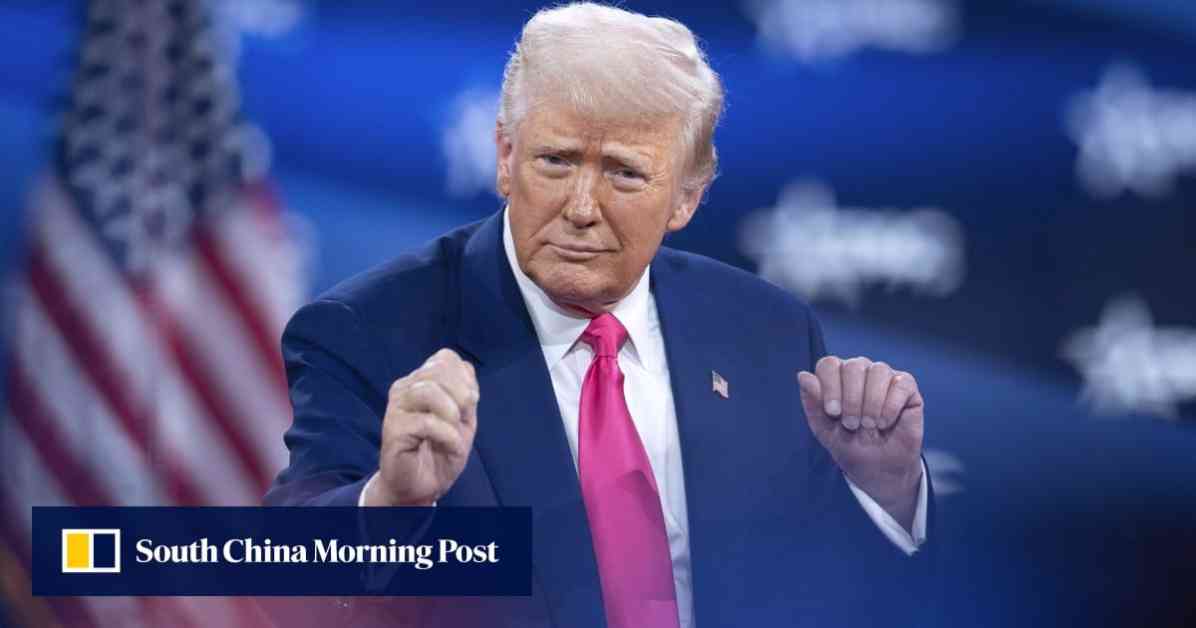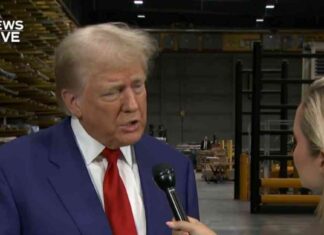The recent shake-up within the US military leadership under President Donald Trump has stirred significant interest and speculation, particularly concerning its implications on the ongoing rivalry between the United States and China. Despite the removal of six senior military officers, including the dismissal of Joint Chiefs of Staff chairman General Charles Brown, experts suggest that this move may not significantly alter the administration’s strategic focus on China. However, it does raise concerns about the potential impact of a less experienced leadership team at the helm.
The abrupt removal of General Brown, the nation’s highest-ranking military officer and principal adviser to the president, has sparked discussions about the administration’s motives and the future direction of US-China relations. In response to this development, President Trump has nominated retired US Air Force Lieutenant General Dan Caine, a former F-16 fighter pilot, to fill the vacant position. However, Caine’s appointment is subject to Senate confirmation before he can officially assume his new role.
Unprecedented Changes in US Military Leadership
The decision to replace General Brown before the completion of his four-year term, which was set to end in September 2027, has raised eyebrows both domestically and internationally. Diao Daming, a professor at China’s Renmin University, highlighted the unusual nature of this move and emphasized the importance of monitoring the situation closely from Beijing’s perspective. The unexpected selection of Lieutenant General Caine, a three-star general, to lead the Joint Chiefs of Staff further complicates the situation, as tradition dictates that a four-star general assumes this critical role.
The implications of these changes go beyond mere personnel shifts within the US military hierarchy. As observers assess the broader impact on US-China relations, questions arise about the administration’s long-term strategic goals and its approach to managing geopolitical tensions in the region. With China’s growing influence and assertiveness on the global stage, any adjustments within the US military leadership are subject to heightened scrutiny and analysis.
Strategic Implications and Global Concerns
The timing of General Brown’s dismissal, against the backdrop of escalating tensions between the US and China on various fronts, further complicates the situation. As the two superpowers navigate complex issues related to trade, technology, and security, any changes in leadership dynamics can have far-reaching consequences for regional stability and international relations. The selection of a new Joint Chiefs of Staff chairman in the midst of these challenges underscores the administration’s commitment to addressing evolving threats and opportunities in the Indo-Pacific region.
Experts caution that while individual leadership changes may not alter the overall trajectory of US-China relations, they can influence the tone and direction of diplomatic engagements and military strategies. As the world closely watches these developments unfold, the importance of maintaining open lines of communication and fostering mutual understanding between the two nations cannot be overstated. The delicate balance of power and influence in the Asia-Pacific region hinges on effective leadership and strategic decision-making at the highest levels of government.
In conclusion, the recent shake-up in the US military leadership, particularly the dismissal of General Brown and the nomination of Lieutenant General Caine, has sparked debates and discussions about the implications for US-China relations. While the administration’s strategic focus on China remains steadfast, the evolving dynamics within the Joint Chiefs of Staff raise important questions about leadership continuity and regional stability. As the world grapples with the complexities of great power competition, the importance of steady leadership and clear communication cannot be underestimated.



























